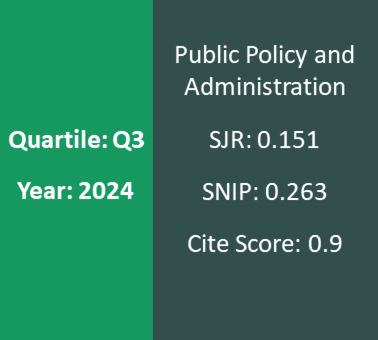Theoretical Approaches in Civil Society Research
Keywords:
civil society, public goods, interest groups, volunteerism, administration.Abstract
The overview of various theories allows us to conclude that civil society is an important scientific concept and a multi-layered
phenomenon. Philosophical ethical and cultural paradigm stresses the importance of the personality in civil society initiatives, also it
takes the role of the State as an absolute factor. Civic consciousness and responsibility when linked to education, is broadly understood
as civility. Variety of social systems and their change is interpreted with reservation and in relative terms. Political scientists are
interested in a more narrow aspect of civil society – into its manifestation and development under conditions of the democratic State.
For them the basic is concept of interest groups is essential therefore public opinion and public discourse are in the focus of the research.
Recently topic of corruption, interpreted as a reflection of the civic values functional in the given society, became very popular among
the researchers. Sociologists view civil society as a political, social and economic complex. High importance is attributed to such
concepts as volunteerism, philanthropy, trust, etc. Specialists of public administration base their insights on the background defined by
the above-described theories and try to confer them practical meaning, recognize applicable elements, apt to managerial knowledge,
create realistic strategies how to foster civil society that is considered to be an important, positive phenomenon that could be improved
by the legal and managerial instruments.





